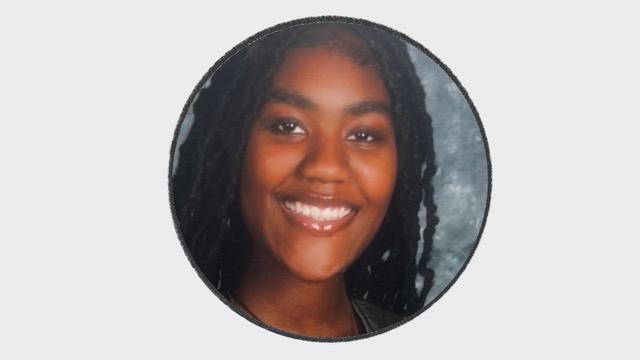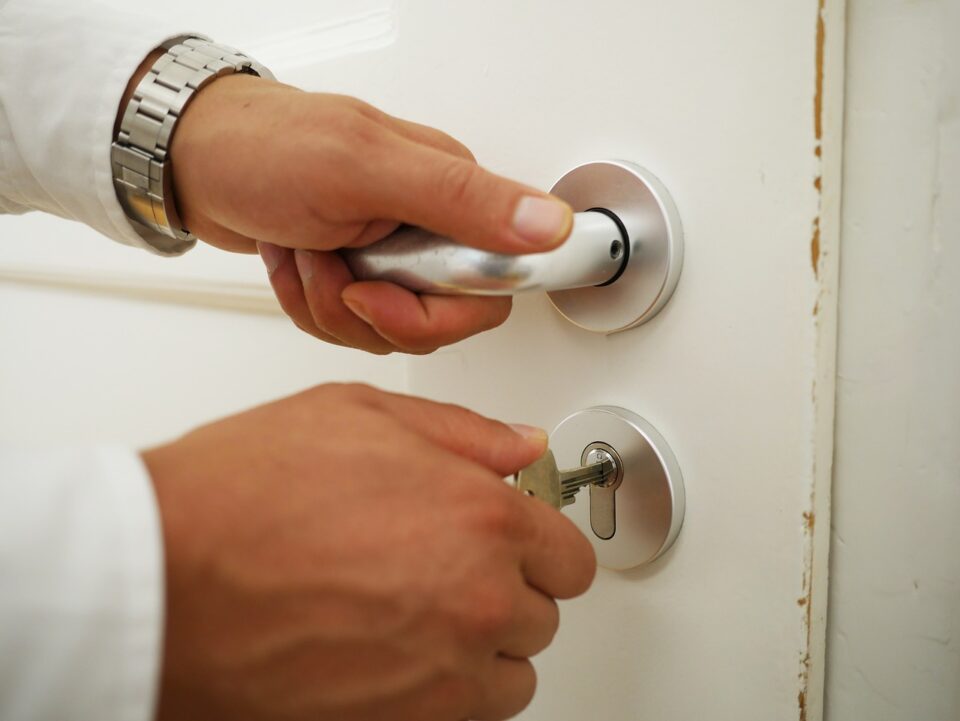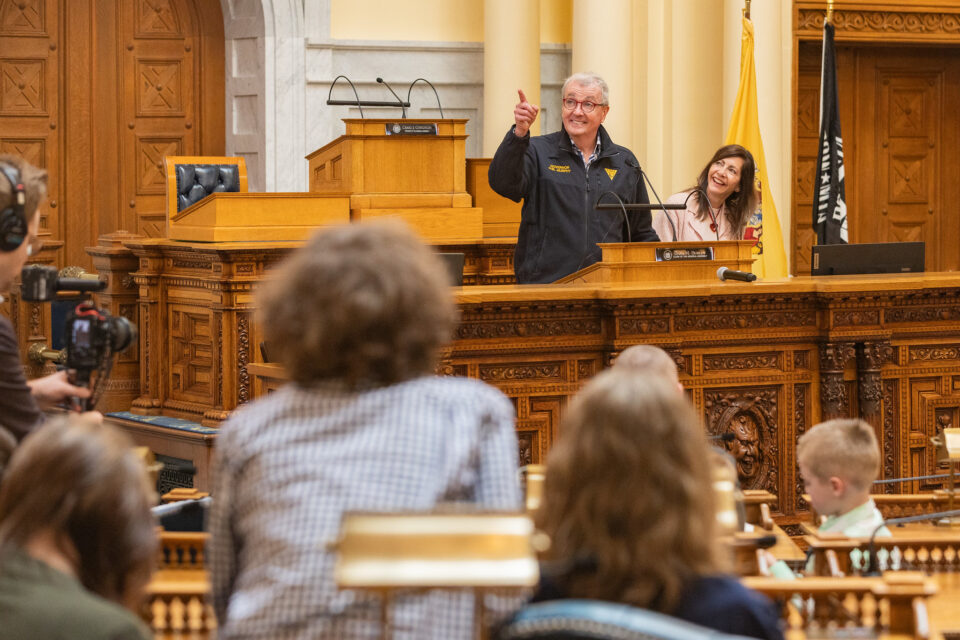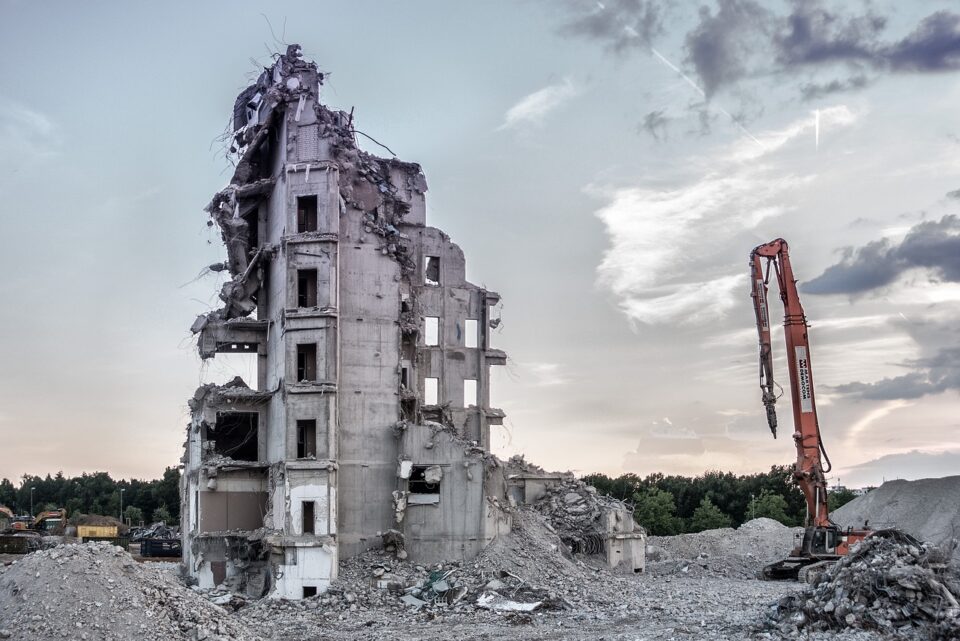
QUIGLEY: Would You Know If Your Child Were Struggling Over Gender Identity?
September 5, 2023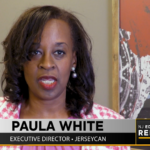
JerseyCAN Chief Will Drill State Board on NJ’s Failure to Oversee Reading Instruction
September 6, 2023Why Is This Jersey 16-Year-Old Barred From Attending School?
Sania Anderson, a junior at Kingsway Regional High School, is a good student who is praised by her teachers (“amazing, smart, and kind,” says one) and well-liked by her peers. However, on March 6, 2023 she was placed in an out-of-school suspension with no end-date because she spent exactly three seconds in a fight where no one was hurt. For almost six months this college-bound young woman, with no history of behavior or learning problems, has endured an eviction imposed by Kingsway superintendent James Lavender and the district school board. She is isolated, depressed, and in counseling for post-traumatic stress disorder caused not by the fight but by the district’s response.
Why is this happening?
Her mother Naimah Howard thinks the primary reason is Sania is Black in a school that is 72 percent white.
Howard’s goal is simple: get her daughter back into school so she can resume her life. Yet the district is demanding that Sania first be evaluated by a Child Study Team for behavioral disorders.
You might wonder if Howard is fighting a special education label at Sania’s expense. You’d likely reconsider when you learn that she is a dual-certified special education teacher who understands the risk-benefit ratio of classification for a student—especially one of color—who thrives academically and socially.
Currently, Howard has filed complaints with the state and federal Office of Civil Rights and received support from the NAACP of Gloucester County. This is Sania’s story, but it is also a depiction of a school district, Howard alleges, that discriminates against Black students.
It’s far from the only one. According to data from the Civil Rights Data Collection, Black females in New Jersey have been “overrepresented in both, out-of-school suspensions and expulsions. The extent of that overrepresentation of Black females has not only worsened over time but could also be considered graver in New Jersey than in the rest of the United States.” The study warns these disproportionate suspensions “increase the likelihood” that Black girls in NJ will enter the school-to-prison pipeline.
Sania’s Story
- At 7:30 am on Monday, March 6th, Sania was in the school cafeteria waiting for the start of classes. A friend of hers, who had been in a verbal altercation with another student the previous Friday, encountered the same student and the verbal dispute devolved into a physical one. This is all on video: at one point, Sania enters the frame, says Howard, for a total of three seconds, one of the girls hits her and she strikes back four times on her arm. Staff quickly broke up the fight.
- At 8 am that morning Howard was told to appear at the school—she rushed from her teaching position in Philadelphia—where assistant principal Meredith Alexander reassured her that everyone was fine and Sania had written an “extremely remorseful” statement recounting the incident, explaining that she engaged to protect her friend. School rules dictated that Sania would be suspended for eight days, given Kingsway’s disciplinary code at the time of the incident, which described the fight as a “one-sided or mutual exchange.” While Howard was distressed, she accepted the disciplinary action—”I was so so disappointed in Sania,” she said— and took her daughter home.
- Then Alexander called again: the school board and superintendent Lavender had reviewed the tape and changed the description of the “mutual exchange” to “assault. This got Howard’s attention because she had been studying the district’s disciplinary Code of Conduct, which listed assault as an incident that could involve the criminal justice system.
- On March 16th, the day before Sania was to return to school, Howard got a call from Kingsway Regional High principal Stephanie Fox-Manno to say that Sania couldn’t come back because there were “additional sanctions based on egregious misconduct.” Indeed, Sania would have to go through the juvenile justice system with a hearing at the Chancery Division of Superior Court, have a Child Study Team evaluation and threat assessment, and then appear at a school board hearing.
Nonetheless, Howard plowed ahead. Her lawyer at the time spoke to the prosecutor in Gloucester County who reviewed the records, noted Sania was a first-time offender and a good student who had never been in trouble, and they agreed to mediation. In his eyes, recalls Howard, it really wasn’t an assault and the County wasn’t interested in prosecution. Instead, Sania could write an essay on conflict resolution and read it at the mediation hearing.
In May Sania and Howard went to court. The Superior Court of New Jersey ruled that charges be dismissed and Sania’s record expunged:
“It is further ordered that the arrest/charge/disposition, which is the subject of this Order, shall be deemed not to have occurred.”
Howard told me, “once the mediation panel learned the girls were still out of school, they were shocked. There were no weapons, no one taken to the hospital. Why are they still out of school? That’s the nagging question in my head.” She recounted that two white boys had gotten into a fight and one ended up in the hospital; they were disciplined with 8-day suspensions and no other consequences.
She also made another discovery: on March 22nd, the Kingsway Regional School Board amended the Disciplinary Code of Conduct to, she alleges, escalate some of the charged offenses against Sania and her friends. But, with the incident occurring on March 6th, the old rules should have applied, which would have put Sania back in school after the eight-day suspension. “You can’t do this retroactively,” she told me. “I vehemently disagree. This is inequitable.”
A Short-Lived Victory
Traumatic isolation aside, Howard and Sania were “elated” at the expungement by the court mediation panel because now Sania would be “back on her college track.” Surely the district would see this and let her back in.
But Kingsway Regional wouldn’t budge. [Note: Superintendent Lavender declined to comment for this story due to regulations regarding student privacy.]
Loretta Winters, president of the Gloucester County NAACP whom Howard had contacted for support and advice, told me, “it’s truly unacceptable for Kingsway to disrupt this child’s education—for one infraction of a fight. It’s disheartening that the district has taken no action.” She added, “the school is creating the problem, not Sania.”
At the end of the school year, with Sania still remanded to long-term suspension, the school board lawyer suggested a path forward, starting with a school board hearing. But the school board “had already made up their minds,” Howard said, and refused to forgo the requirement that Sania have a Child Study Team evaluation and threat assessment before she would be allowed to return to school. She remembers Lavender saying he was a believer in a zero-tolerance discipline policy.
The district law firm then sent a due process notice to Howard, dated May 10th, which described the fight, which the Court had dismissed as “simple assault,” as a “melee…which involved several students and staff members who were injured when they attempted to intercede. Reportedly, [Sania] injected herself into a physical confrontation between students and punched another student, who was already on the ground, several times.” Also, the Child Study Team wanted to conduct a psychological evaluation to determine if Sania has “Emotional Regulation Impairment.”
I asked Howard why she was so opposed to a CST evaluation. “As a parent,” she said, “I know I can refuse testing and I’ve always been an advocate for Sania.” Her daughter has no history of even minor behavioral infractions and, as a special education teacher in Philadelphia, she is well aware that Black students are disproportionately represented in special education, with dire results. And she wonders why the district doesn’t adhere to a “restorative process” instead of remanding her daughter to home instruction “with impossible, inequitable sanctions.”
A report from the National Center for Learning Disabilities confirms Howards concerns:
“Due to bias within the education system (including within assessments and academic and other policies), students of color can be misidentified as needing special education, and are then placed in more restrictive settings and experience harsher discipline because of the intersectionality of race and special education.”
A 2020 national data analysis found students of color “can be overrepresented in specific special education categories, such as emotional disturbance.”
NJ’s Discriminatory Discipline Policies
Coincidentally, on August 28th the New Jersey Education Department released a “comprehensive guidance document on preventing discrimination in school discipline” because districts are “inappropriately putting children into special education programs [which] causes short-term and long-term harm, specifically for students of color, students from low-income backgrounds, and students of color from low-income backgrounds. Students misidentified as having disabilities and placed in special education are denied opportunities and rigorous curriculum that is crucial to their academic success. Additionally, even when appropriately identified, students of color, once placed in special education programs, are disproportionately secluded and harshly punished. The effects of these actions on children of color are widespread and damaging.”
“From kindergarten to high school classrooms, Latinx/e and Black students face disproportionate discipline for the same actions committed by their white peers,” said NJ Attorney General Matthew J. Platkin. “These disparities are unacceptable and should alarm us all.” In a data release that accompanies the new guidance, the DOE says while Black students represent 15.5% of NJ students, they make up 30% of referrals to law enforcement—just like in Sania’s case. The guidance specifically calls out the adverse effects of “zero tolerance” policies like the one adhered to by the Kingsway Regional school board, explaining these policies “consistently lead to unequal suspension and expulsion rates for students of color.” District policies like zero tolerance, it advises, would only survive legal challenges if schools could show no less restrictive policies were available.
While Howard’s complaints to the Office of Civil Rights are in process, which she’s told can take 180 days, “I’m at an impasse,” she said. “Parents should feel empowered by the promise of a free and equal education but the power imbalance negates that.” She doesn’t trust the district to perform an unbiased assessment of Sania because “they pick and choose to change the rules, leading to racial discrimination.” Meanwhile, “my daughter’s academic hopes are at risk” while she tries to learn on a laptop at home.
“The damage is done,” says Howard. “Despite my efforts to protect her, Sania is traumatized as a direct result of being thrust into the juvenile justice system. She’s being excluded and isolated, missing out on educational experiences and social interaction with her peers, and having her character defamed by the school community. My daughter understands she wasn’t the initial victim, but she’s also been victimized by this disciplinary process. There is seemingly no end to the consequences.”
How much longer will Sania have to suffer for a three-second attempt to defend her friend? What lessons is Kingsway Regional’s leadership trying to teach her at this point? Howard muses, “one mistake does not have to cost this young girl her life; it seems she has already paid more than her fair share. It is not too late to fix the broken system that got us here.”
